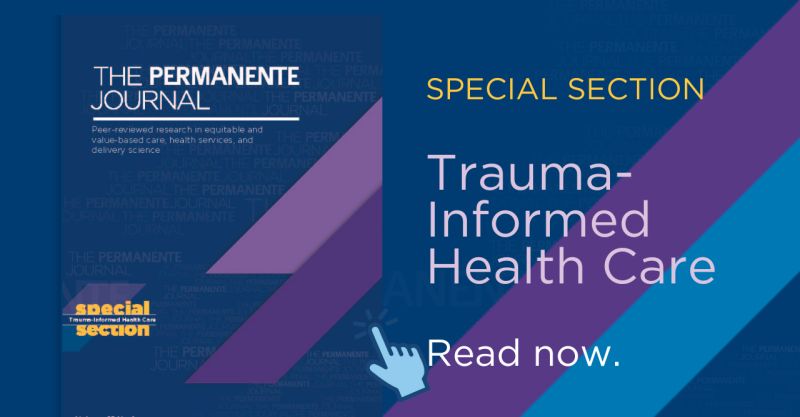Faculty co-lead a special section on trauma-informed health care
body copy

UIC College of Nursing assistant professor Ellen Goldstein, PhD, is co-guest editor on a special section on trauma-informed health care in The Permanente Journal, along with UIC College of Medicine clinical associate professor Audrey Stillerman, MD, and professor Martina Jelley, MD, MSPH, at the University of Oklahoma School of Community Medicine.
The section features 13 articles focusing on how early-life experiences correlate with health outcomes and how to incorporate that research into all aspects of health care.
Trauma-informed health care is increasingly recognized as a critical part of health care delivery.
“It’s very similar to the principles of patient-centered care, which we’re already doing, but patient-centered care doesn’t consider the physical and mental health effects of having experienced one or more traumatic events,” Goldstein says. “That’s sort of the big missing piece of patient-centered care – to directly address the effects of trauma and how it’s impacting someone’s health currently.”
The special section, which is focused on innovations in trauma-informed health care, reflects the work of authors from 27 organizations. In addition to UIC, these include Harvard Medical School, The Center for Collaborative Study of Trauma, Health Equity, and Neurobiology in Chicago, Emory University School of Medicine and others.
“Robust health and social science research demonstrate that experiences, both positive and traumatic, profoundly shape lifelong health,” Stillerman wrote in an email.
She adds that the articles create a practical guide for health care professionals to develop, implement and evaluate trauma-informed health care, illustrating, “promising approaches and models that can be adapted and implemented throughout diverse settings while highlighting the gaps in the current health care landscape.”
body copy

Goldstein, who was lead author on two of the papers in the section, says the special section leverages and highlights the work of the National Collaborative on Trauma-Informed Health Care Education and Research (TIHCER) community, which has grown by word of mouth since its founding in 2018 to nearly 160 members from medicine, nursing, behavioral health, public health, governmental departments and agencies, and national councils and organizations across 31 states.
“A lot of this work stems from a movement that’s been happening over the last couple decades, to first acknowledge that there is trauma, which has been the elephant in the room,” Goldstein says. “If we’re not acknowledging it when we’re working with health issues, whether mental health or physical health, then we’re missing a potentially major contributing factor to someone’s current state of health and a cornerstone for prevention and treatment.”
The Permanente Journal is a peer-reviewed, open-access journal available for free online.